Appendix C
Poverty Thought Force World Cafés
Hunger & Food Insecurity
Sept. 10, 2015. Biotech Place, Wake Forest Innovation Quarter
To avoid duplicating efforts, the Thought Force's subcommittee on hunger and food insecurity adopted the findings of a World Ccafé held in September 2015 that was organized by Second Harvest Food Bank of Northwest North Carolina, Wake Forest University and WFDD.
This World Café and community conversation drew 170 participants who discussed three topics: enhancing access to nutritious food, engaging neighborhoods in addressing food insecurity, and reducing the stigma too often associated with participation in nutrition-assistance programs like SNAP and WIC.
Prompts for the table discussions were:
1. How might we enhance access to healthy food and nutrition education for needy children and adults in Forsyth County?
2. How best to engage neighborhoods—across Forsyth County—to address food insecurity, both in their own neighborhood (as appropriate) and in the larger community?
3. How might we reduce the perceived stigma associated with dependence on food stamps, emergency pantries, and similar sources of food assistance?
Housing & Homelessness
Feb. 23, 2016. Biotech Place, Wake Forest Innovation Quarter
This World Café drew 120 participants who discussed how to boost access to and the inventory of affordable housing, and how to ensure that residents take advantage of existing housing programs. Participants were also asked to brainstorm new approaches for reducing or eliminating homelessness.
Prompts for the table discussions were:
1. How might we enhance access to decent, affordable housing for all Winston-Salem residents? What incentives (or regulatory requirements) might encourage developers to increase the stock of affordable housing, and encourage landlords to keep buildings in good shape?
2. How best to enhance qualified residents’ participation in existing programs of housing support? These include education about the benefits of homeownership and efforts to enable those in public housing to transition to the housing market. Relatedly: how to expand our most successful housing-support programs?
3. What new or expanded policy approaches could help reduce or even eliminate homelessness in Winston-Salem?
Education & Life Skills
Feb. 23, 2016. Biotech Place, Wake Forest Innovation Quarter
This World Café drew 130 participants who discussed how to boost educational achievement in our schools, how to provide educational and life-skills opportunities for non-traditional students, and how to encourage community involvement with our education system.
Prompts for the table discussions were:
1. How might we ensure that all of Winston-Salem’s children arrive in kindergarten ready to learn, and complete high school with adequate preparation for college or career?
2. How might we better offer educational opportunities—including learning about life skills— across generations and groups, beyond K-12 students: for lifelong learners, the unemployed, parents, grandparents, caregivers?
3. How best to engage members of the community without school-going children to recognize that they have a critical stake in addressing issues related to education?
Health & Wellness
March 17, 2016. Saint Peter's Church & World Outreach Center
This World Café drew 70 participants who discussed infant and early childhood health, access to affordable medical care, and the need to focus on preventative care as a means of enhancing health and wellness.
Prompts for the table discussions were:
1. How can we enhance infant/early-childhood health outcomes?
2. How might we expand access to reliable and affordable health care, including mental health care?
3. How can we best shift providers and patients alike to a focus on preventive care, e.g., treating chronic diseases before they become life-threatening?
Jobs & Workforce Development
March 17, 2016. Saint Peter's Church & World Outreach Center
This World Café drew 80 participants who discussed barriers to employment, job skills straining for low-income individuals and how to create better paying jobs.
Prompts for the table discussions were:
1. How might we create more living-wage jobs in Winston-Salem/Forsyth County?
2. How can we overcome primary barriers to employment, such as felony record, ageism, racism, sexism, unpredictable schedules for low-wage workers, and others?
3. How can we expand access to job training/skills programs, enabling more low-income individuals to secure steady work?
Community Review
October 10, 2016. Biotech Place, Wake Forest Innovation Quarter
This World Café drew 72 participants, nearly all with current or recent personal experience of poverty. Attendees discussed recommendations that had emerged from the five previous world cafes and offered new ideas for addressing issues in each of the five topic areas.
The comments from this World Café were recorded by scribes and are to be found in italics in Appendix A.
